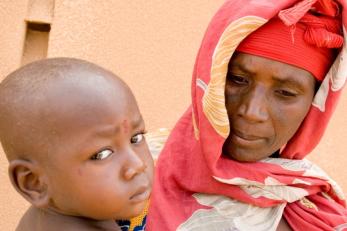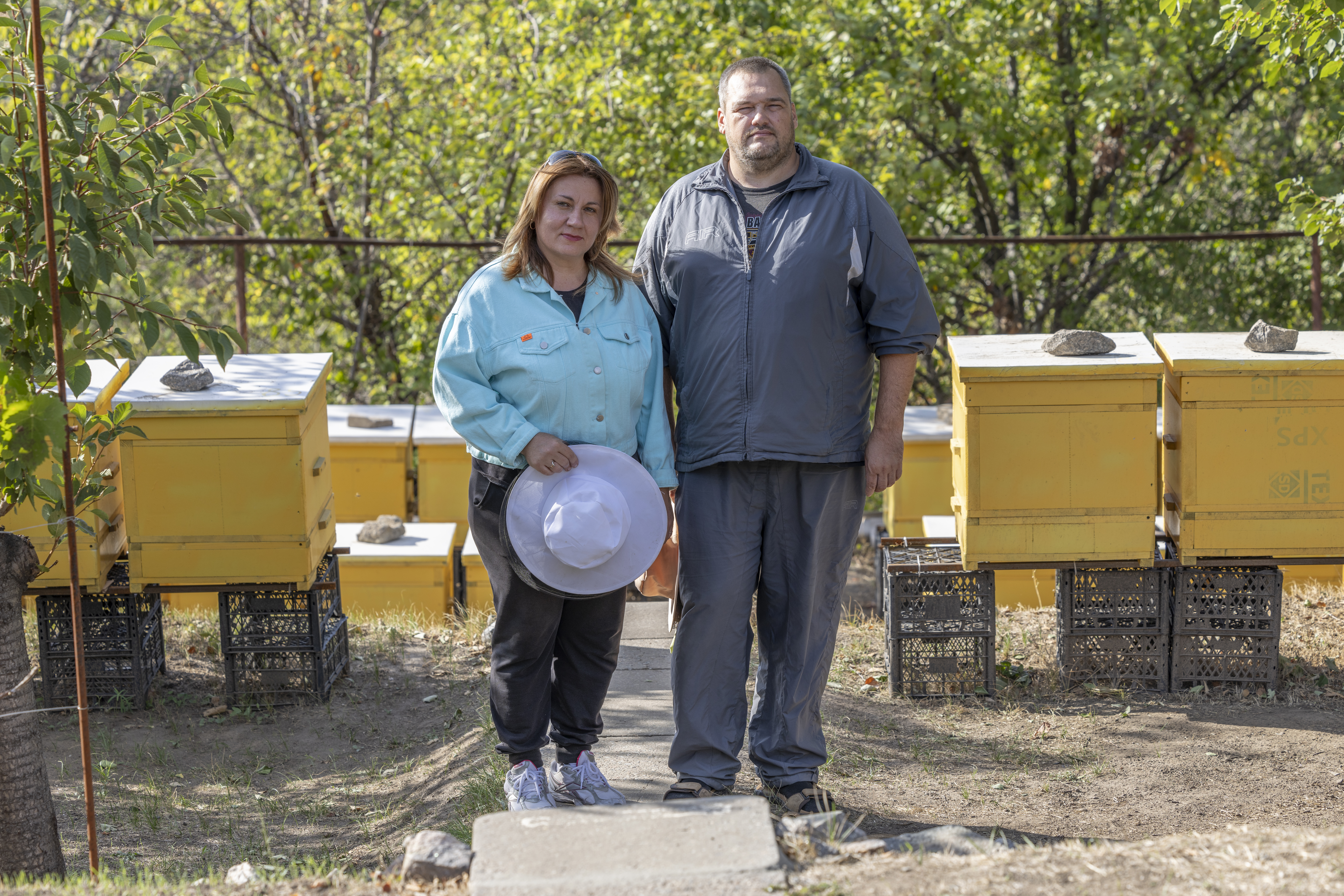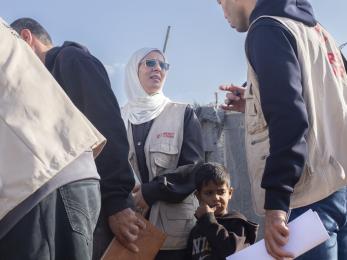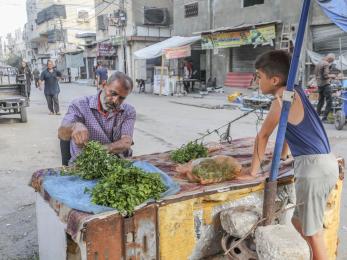The growing food crisis in Niger

There’s a crisis brewing in Niger, West Africa.
Years of unpredictable rains, intense poverty and a poor harvest in 2011 have left 5.5 million people (over a third of the country’s population) facing significant food shortages this year. A deeply worrying 1.3 million of that number are at serious risk from hunger and need immediate humanitarian assistance.
Decimated harvests
Mercy Corps teams in Ouallam and Filingué — two areas in southwest Niger that are among the hardest hit by drought and the growing food crisis — say the situation is getting more serious by the day. Late rains and damage from insects at the end of 2011 left between 70 and 100 per cent of farmers with no crops to harvest at all. Families struggle to make food last from one October harvest to the next even during normal years, but with no stored crops and little grazing for weakened livestock, the number of people with access to enough food is plummeting rapidly.
Soaring food prices
Food prices are soaring as a result. Between October and December 2011 the cost of grain staples like millet and sorghum doubled. Many families in the region have still not recovered from droughts and shortages in 2009, and can’t afford the high prices. Those with any assets are selling what they have left to buy food, and others are taking on debts. Many people are leaving their communities altogether, in search of work, food and water. Schools are growing emptier by the day as children leave with their parents or on their own to find work for food.
Dramatic increase in malnutrition
Members of our team are encountering more and more families who are forced to skip meals and significantly reduce the amount of food in each meal. Women, in particular, are often missing meals for an entire day or longer. Consequently, we're seeing a dramatic increase in malnutrition. The number of children under five who are acutely malnourished has already reached levels the World Health Organisation classes as serious in many areas.
In Kanya village in Filingué last week, a community member told our team: “We have nothing left to eat in this village. Some households are only getting one meal within 36 or 48 hours; now we eat flowers and leaves of the ‘Garbey’ tree. We pound the flower, mix it with lot of water, drink some and keep some so that any time a child cries, we give him or her some mixture to drink and they calm down.
"There is nothing we can do and sometimes they get diarrhea. We have nothing left, so we need help. This is the worst crisis we have seen in our village for so many years. In 2009 we had at least few of us that could harvest. This year no one could get anything out of the farms. We lost everything. We need help.”
With the next harvest not expected before October 2012, the situation is poised to deteriorate even further without significant humanitarian intervention.
Mercy Corps Response
The UN and Government of Niger have both declared this situation a serious crisis. Mercy Corps teams have been working in some of the most at-risk areas for some time, helping communities to deal with the effects of poor rains and putting in place monitoring systems for malnutrition and food levels so that when crises like these build, we can help before they reach famine levels on the kind of scale seen in the Horn of Africa.
We’re gearing up our teams on the ground and taking action to prevent this current crisis growing worse. Now and in the coming weeks we’re looking to distribute emergency supplies and cash to those who need them most; getting clean water, food, nutrition and health advice to communities who have lost everything; creating short-term jobs for local people so they can earn the money they need to buy food; helping herders keep their existing animals healthy with vaccinations and advice; and working with local people to build their communities’ resilience to drought and food shortages, now and in the future. It’s important that at the same time as helping the people of Niger survive this current crisis, we continue to invest in ways to stop the cycle of hunger they face recurring in years to come.
We’ll keep you updated on our response and the situation on the ground as this crisis unfolds.


